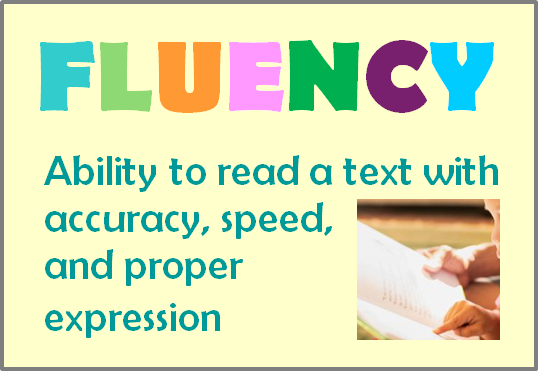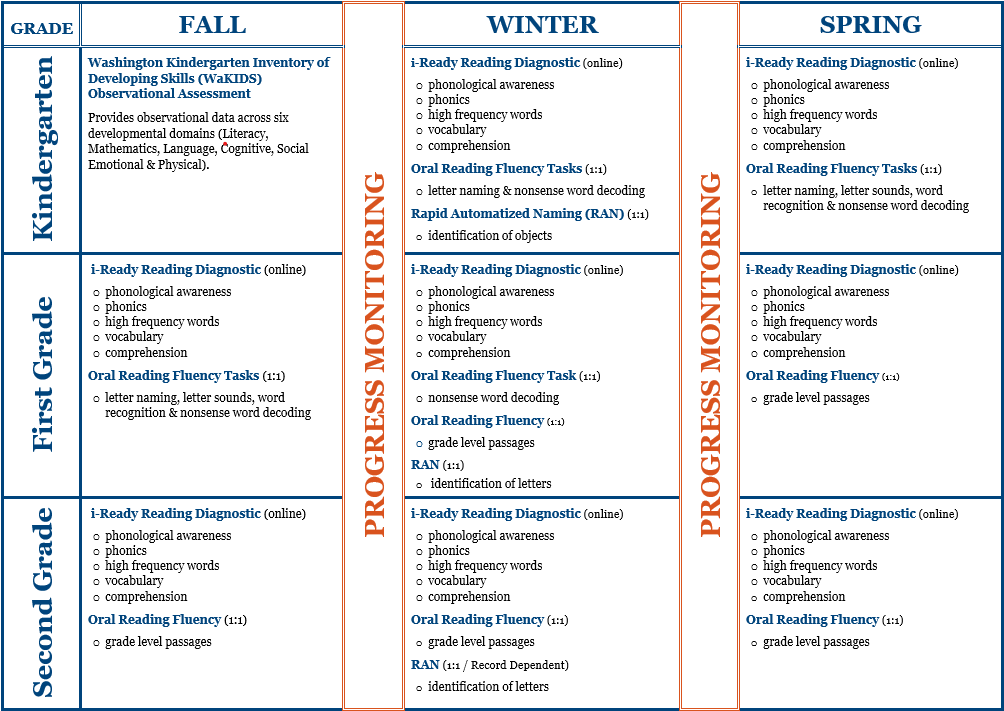- Everett Public Schools
- Early Literacy Screening
P-5 Instruction & Early Learning Programs
Page Navigation
- Overview
- Early Literacy Screening
- Challenging Options - LEAP & Highly Capable
- ECEAP Preschool
- Other Preschool Options
- Kindergarten
- Resources for Preschool and Kindergarten Readiness
- English Language Arts
- Health and Fitness
- Math
- K-12 Science and Engineering
- Social Studies
- K- 12 Visual and Performing Arts
Early Literacy Screening
-
 Everett Public Schools’ mission is to inspire, educate, and prepare each student to achieve high standards, contribute to our community, and thrive in a global society. Ensuring third grade literacy is a strategic initiative that provides the foundation for communication and language skills.
Everett Public Schools’ mission is to inspire, educate, and prepare each student to achieve high standards, contribute to our community, and thrive in a global society. Ensuring third grade literacy is a strategic initiative that provides the foundation for communication and language skills.Washington passed a law in 2018 that requires schools to screen children in kindergarten through second grade for characteristics of dyslexia in their early literacy skills and to provide reading support for those who need it.
As of the 2021-22 school year, Washington State requires each school district to screen students in Grades K-2 for early literacy skill development, particularly looking for weaknesses that may be associated with dyslexia. Screening allows our instructional staff the opportunity to identify potential learning challenges early on.
Some of the key skills we screen for include:
- Knowledge of letter names and sounds
- The ability to identify and work with the sounds of language (for example, to blend the sounds /c/, /ă/, /t/ together to get the word “cat”)
- The ability to name common objects, colors, letters, and/or numbers quickly (research shows this can predict who is likely to struggle with reading)
- Word reading (real and nonsense)
- Reading smoothly and at an appropriate pace
We use the screening information to plan targeted instruction to help each child reach grade level reading standards. Early intervention to address reading difficulties is the best way to prevent reading challenges from becoming more severe over time.
Does the Early Literacy Screening process diagnose dyslexia?
-
 Our district's assessments do not diagnose dyslexia. Our assessments are designed to identify student strengths and areas for growth to design targeted instruction.
Our district's assessments do not diagnose dyslexia. Our assessments are designed to identify student strengths and areas for growth to design targeted instruction. The screener assesses students' ability to understand and distinguish sounds that make up a word (Phonological Awareness) and the ability to connect the sounds that make up words with the letters in the word (Phonics).
If your child shows areas of weakness during the early literacy screening process, you and your child’s teacher will develop a reading plan to best support their literacy growth.
Early Literacy Screening Tools
-
We use the following tools to screen students. These assessments were chosen to provide us with the information we need to support all children and to meet Washington State’s requirements.
 i-Ready Reading Diagnostic: The computer adaptive diagnostic assesses student skills with phonological awareness, phonics, high frequency words, vocabulary, and comprehension.
i-Ready Reading Diagnostic: The computer adaptive diagnostic assesses student skills with phonological awareness, phonics, high frequency words, vocabulary, and comprehension.- i-Ready Oral Reading Fluency Tasks: These tasks are administered 1:1 and are used to measure oral fluency with skills such as letter names, letter sounds, word reading and passage reading.
- Rapid Automatized Naming (RAN): The RAN task is administered 1:1 and is a fluency measure of automaticity. This is the ability to quickly and accurately name common objects, colors, letters, and/or numbers.
Assessment Timeline
What does screening mean for our multilingual learners?
-
- Children who are multilingual are included in the early literacy screening process and are equally likely to have reading difficulties as their native-English-speaking classmates.
- Screening tools are in English and therefore may not be appropriate for children who are just starting to acquire English. Multilingual learners are also assessed using WIDA ACCESS which measures English language development in Listening, Reading, Speaking and Writing.
- It is important not to confuse language development with a reading disability. Progress over time with language development is considered during the Early Literacy Screening process.
- Multilingual learners at all levels of English proficiency receive core instruction and assessment in the foundational skills of reading.
- Students in dual language programs receive foundational reading skills instruction in both program languages.
Talking about Early Literacy Difficulties
-
When students have early literacy challenges, it is important to talk about these challenges and work with school staff on how to best support development of literacy skills with early interventions. Family guidance from OSPI for families and teachers are available in the following resources:
 Chinese Russian Spanish Vietnamese Tagalog
Chinese Russian Spanish Vietnamese Tagalog - Family and Caregivers Discussion Guide (English)
Chinese Russian Spanish Vietnamese Tagalog
Learn More about dyslexia and dyslexia screening on the OPSI Website.


